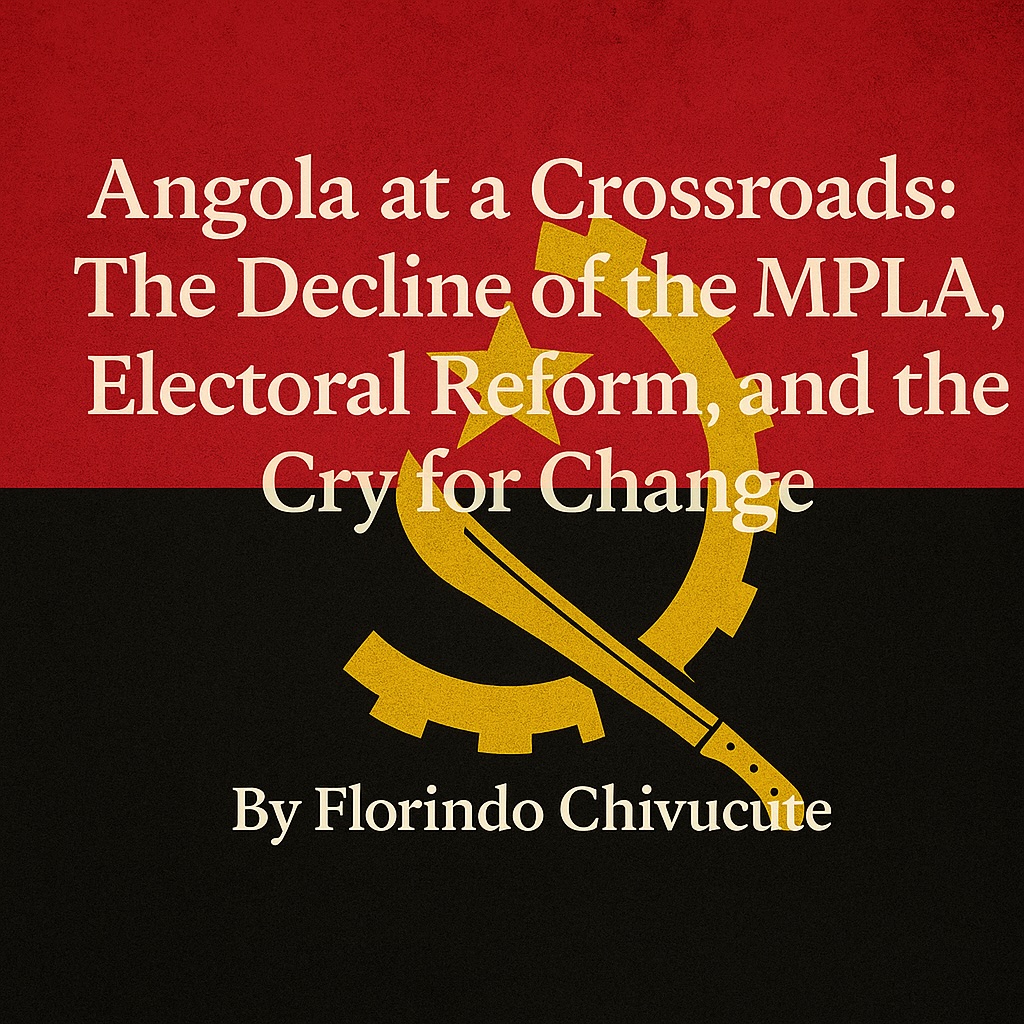By Florindo Chivucute
Luanda, May 25, 2025
After nearly half a century in power, the MPLA (People’s Movement for the Liberation of Angola) faces the greatest challenge in its history: a crisis of legitimacy in the eyes of a people exhausted by unfulfilled promises, a suffocated economy, entrenched corruption, and a political system more concerned with preserving power than serving its citizens.
The 2022 general elections made it clear that times have changed. With 51.17% of the votes, the MPLA secured the narrowest victory since the introduction of multiparty politics. Meanwhile, UNITA (National Union for the Total Independence of Angola), with 43.95%, made a surprising ascent—especially in Luanda, where it achieved a symbolic and significant victory. This outcome reflects the awakening of an urban, connected, and politically conscious youth who refuse to accept stagnation as their destiny.
Angola’s crisis is deep and multifaceted. In 2024, accumulated inflation reached approximately 20.8%, driven by rising food and fuel prices. Unemployment officially affects 32,3%, of the active population, with rates exceeding 50% among the youth. The cost of living pressures families across all social strata, and the informal economy has become the only alternative for millions.
At the heart of this crisis lies a crushing external debt, particularly with China. Angola has become China’s largest African debtor, accumulating over $20 billion in debt—much of it under the ‘resources for loans’ model, in which oil was exchanged for financing. This formula has compromised Angola’s budgetary sovereignty: today, around 60% of oil revenues go toward debt servicing rather than social investment.
Despite some renegotiations, the country remains vulnerable to external shocks, with a state that is fiscally and institutionally limited—and corruption continues to be a corrosive factor. The promises of moralization made by João Lourenço since 2017 generated headlines but have produced few structural results. The anti-corruption efforts have proven selective, often driven by internal disputes, while impunity remains untouched at the heart of power.
Amid this scenario, the MPLA proposed amendments to the Organic Law on General Elections that, far from strengthening democracy, raise serious concerns. Among the changes are: (1) the centralization of vote counting in Luanda, (2) the exclusion of party delegates—key figures in vote oversight at polling stations, (3) the proposal that the National Identity Card (BI) be the only valid document for voting in Angola, and (4) the elimination of summary minutes at polling stations.
The official discourse speaks of ‘professionalization’ and ‘depoliticization,’ but what is visible is a clear reduction in scrutiny and democratic oversight mechanisms. The new configuration grants even more power to the National Electoral Commission, whose composition remains largely subordinated to the Executive. Changing the rules of the game when you start losing is not reform—it is manipulation.
UNITA has presented an alternative proposal that includes measures to increase transparency, such as the immediate publication of results at polling stations. Civil society organizations such as Friends of Angola and many others have spoken out against the democratic setbacks embedded in the proposed changes.
The message from the streets and the polls is clear: Angolans—especially the youth—want more than just the right to vote. They want their vote to count. They want strong institutions, impartial justice, real opportunities, and a government that serves, not one that serves itself.
The decline of the MPLA is not only electoral—it is ethical, institutional, and social. But this turning point may also be an opportunity: a chance to rebuild the democratic pact, rebalance power, and open space for citizenship and alternation.
Angola is at a crossroads. Democracy is at stake. And the world is watching.
About the Author
Florindo Chivucute is the Founder and Executive Director of Friends of Angola (FOA), a
consultant, researcher, and a sanctions specialist, he holds a B.A. in Government and
International Politics and a Master’s degree in Conflict Analysis and Resolution from
George Mason University in the United States. His work focuses on promoting
democracy, combating corruption, and strengthening civil society in Angola and across
Central Africa.

